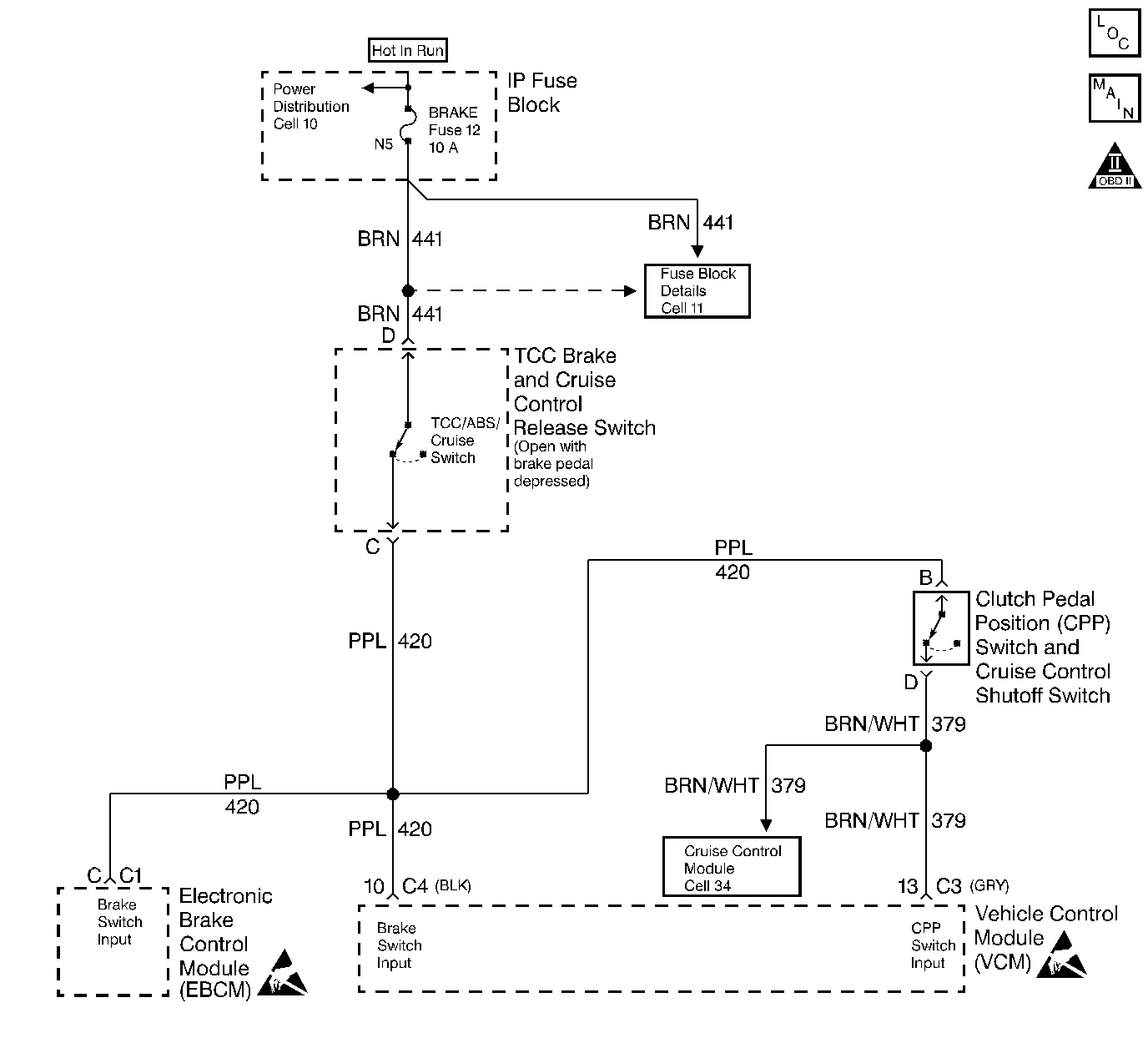
Circuit Description
This DTC determines if the Transmission Clutch Switch has failed by looking for a clutch switch transition within a range from 0 mph to some higher speed. This DTC is a type B DTC.
Conditions for Setting the DTC
| • | There are no VSS DTCs |
| • | The vehicle speed is greater than 40 mph. |
| • | No clutch transitions have been detected |
Action Taken When the DTC Sets
The VCM turns the MIL (Malfunction Indicator Lamp) ON after 2 consecutive trips with the fault present.
Conditions for Clearing the MIL/DTC
The VCM turns OFF the MIL after 3 consecutive driving trips without a fault condition present. A history DTC will clear if no fault conditions have been detected for 40 warm-up cycles (the coolant temperature has risen 22°C (40°F) from the start-up coolant temperature and the engine coolant temperature exceeds 71°C (160°F) during that same ignition cycle) or the scan tool clearing feature has been used.
Step | Action | Value(s) | Yes | No |
|---|---|---|---|---|
1 |
Important: Before clearing the DTCs, use the scan tool in order to record the Freeze Frame and the Failure Records for reference. This data will be lost when the Clear Info function is used. Was the Powertrain On-Board Diagnostic (OBD) System Check performed? | -- | ||
2 |
Does the scan tool display a change in state when the Clutch is engaged and disengaged? | -- | ||
3 | Check for a blown brake fuse. Was the fuse blown? | -- | ||
4 |
Does the scan tool display the Clutch Switch ON? | -- | ||
5 | Remove the jumper. Does the scan tool display the Clutch Switch OFF? | -- | ||
6 | Check for an open in the Clutch signal circuit. Was a problem found? | -- | ||
7 | The problem is intermittent. Refer to Intermittent Conditions . | -- | -- | -- |
8 |
Is the action complete? | -- | -- | |
9 | Check for a short to B+ on the Clutch Switch signal circuit. Was a problem found? | -- | ||
10 | Check for a poor terminal contact for the Clutch Switch signal circuit at the VCM connector. Was a problem found? | -- | ||
11 | Replace the Clutch Switch. Is the action complete? | -- | -- | |
12 | Repair as necessary. Is the action complete? | -- | -- | |
13 | Replace the VCM. Important: When replacing the VCM, the new VCM will need to be programmed. Refer to VCM Replacement/Programming . Is the action complete? | -- | -- | |
14 |
Does the scan tool indicate that this diagnostic ran and passed? | -- | ||
15 | Use the scan tool in order to display the Capture Info and the Review Info. Are there any DTCs displayed that have not been diagnosed? | -- | Go to the applicable DTC table | System OK |
